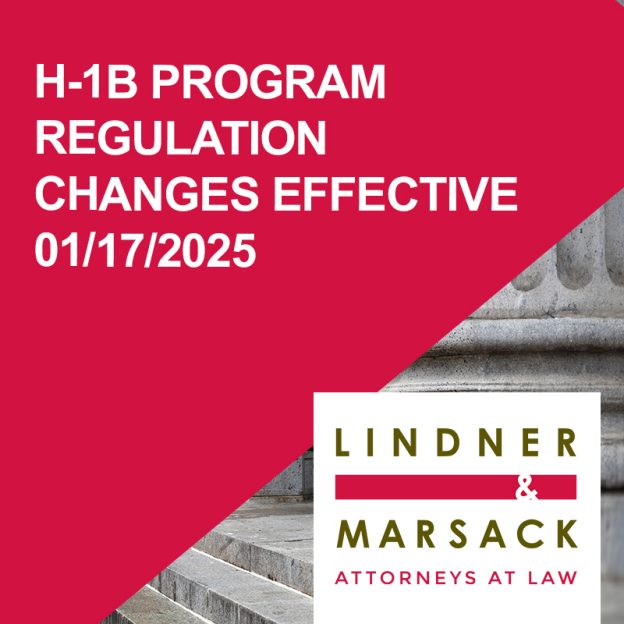By: Samantha J. Wood
January 31, 2025
The U.S. Department of Homeland Security (DHS) published a new regulation to modernize and improve the H‑1B program, a visa program commonly used by U.S. employers to temporarily hire foreign workers for specialized occupations. The new regulation took effect on January 17, 2025.
The intent of the H-1B program is to help employers who cannot otherwise obtain needed business skills and abilities from the U.S. workforce by authorizing the temporary employment of qualified individuals from outside the U.S. The program is commonly used in information technology and software development, architecture, engineering, mathematics, physical sciences, medicine and healthcare, and education positions, among others requiring an advanced degree.
As of January 17, 2025, the final rule makes several changes to enhance transparency and efficiency in hiring foreign talent and to prevent misuse of the program. These changes include the following:
- The rule better defines the term “specialty occupation.” To qualify for an H-1B visa, the occupation must require the theoretical and practical application of a body of highly specialized knowledge for which the attainment of a bachelor’s degree or higher (or equivalent experience) in a specific field is required. The new rule clarifies that while a position may allow for a range of degree fields, the degree must be “directly related” to the position. In other words, the degree must be tightly related and have a logical connection to the position.
- The rule reminds H-1B employers that they must establish a bona fide position in a specialty occupation for the H-1B worker as of the requested start date of the petition. In order to show the bona fide nature of the beneficiary’s position, USCIS may request contracts, work orders, or other related evidence.
- The rule codifies the automatic “cap-gap” extension for F-1 students working pursuant to Optional Practical Training (OPT) to avoid lapses while the student’s H-1B petition is processing.
- The new rule codifies existing internal policy, which provides that U.S. Citizenship and Immigration Services (USCIS) will defer to prior determinations of eligibility when adjudicating petitions. This means that USCIS would be expected to give deference to a prior H-1B approval when reviewing an H-1B extension petition filed by the same petitioner for the same position.
- The rule clarifies and simplifies the requirements for those seeking a H-1B cap exemption pursuant to employment at a qualifying institution, organization, or entity.
- The rule now allows entrepreneurs to obtain H-1B visas through petitions filed by their own start-ups.
- The rule expands USCIS’s authority to conduct site visits and indicates that if USCIS is not able to verify facts, it may deny or revoke previously approved H-1B petitions.
While the new H-1B rule makes it easier for employers to hire talented foreign workers, employers should also be prepared for increased scrutiny and enforcement efforts under the new administration. This may ultimately result in slower processing times and additional requests for evidence to secure work authorization.
If you would like to learn more about the H-1B process, submit a registration for the 2026 H-1B lottery, or have questions about this material, please contact Samantha J. Wood by email at swood@lindner-marsack.com, or any other attorney you have been working with here at Lindner & Marsack, S.C.

